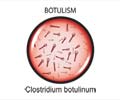Maternal exposure to chemicals is found to be associated with autistic-like behaviors in children.

‘Expressions of autistic-like behaviors in pre-school-aged children were found to be correlated with gestational exposure to selected environmental toxicants, including metals, pesticides, polychlorinated biphenyls (PCBs), phthalates, and bisphenol-A (BPA).
’





It was found that higher maternal concentrations of cadmium, lead, and some phthalates in blood or urine samples were associated with increased SRS scores, and these associations were particularly strong among children with a higher degree of autistic-like behaviors. The study also noted that increased maternal concentrations of manganese, trans-Nonachlor, many organophosphate pesticide metabolites, and mono-ethyl phthalate (MEP) were most strongly associated with lower SRS scores.
Autistic Behaviours and Environmental Toxins
This study primarily "highlights the relationships between select environmental toxicants and increased SRS scores. Further studies are needed to fully assess the links and impacts of these environmental chemicals on brain development during pregnancy," says Josh Alampi, the study's lead author.
The statistical analysis tool, called Bayesian quantile regression accomplished the outcomes, that permitted specialists to figure out which singular poisons were related with expanded SRS scores in a more nuanced route than customary strategies.
Advertisement
Source-Medindia











